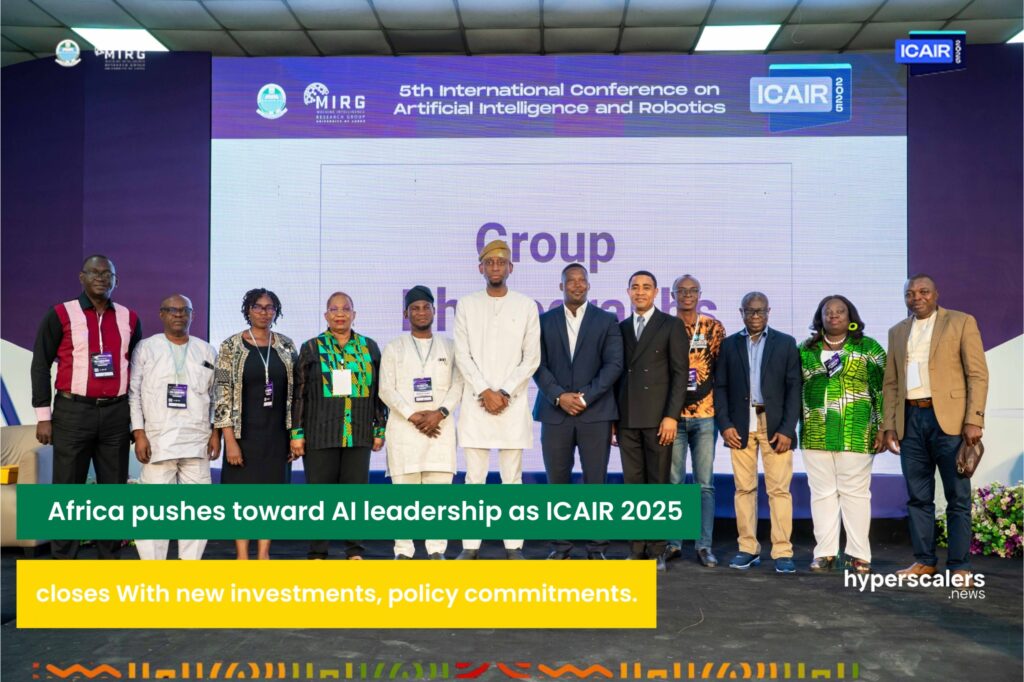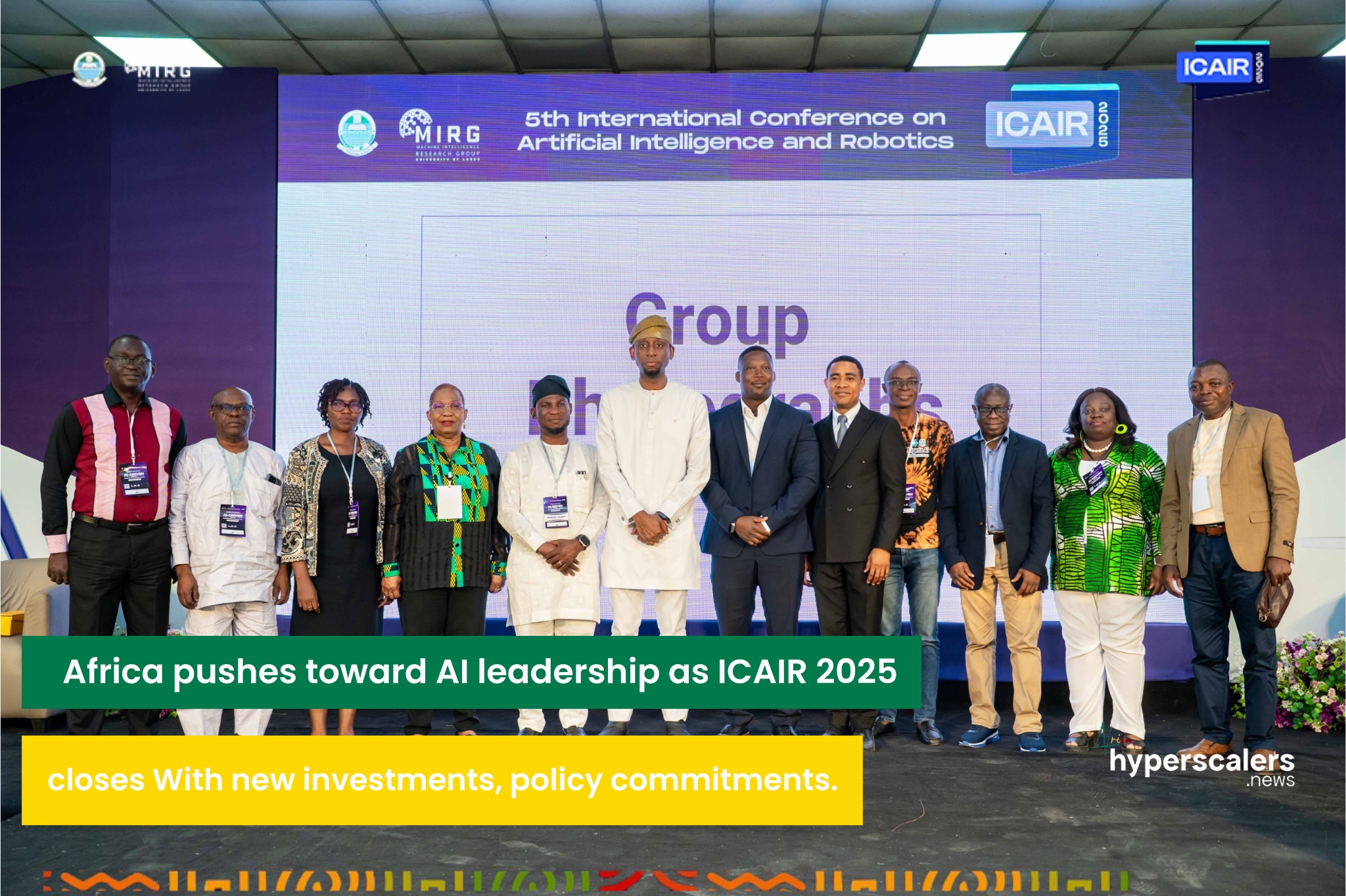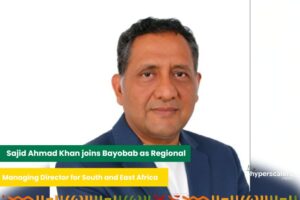Africa is moving to position itself for the next wave of artificial-intelligence development, as researchers, policymakers, and technology executives concluded the 5th International Conference on Artificial Intelligence and Robotics (ICAIR 2025) with renewed commitments to infrastructure, regulation, and talent.
The three-day gathering—organized by the Machine Intelligence Research Group (MIRG) in partnership with NITDA IT Hub (NITHUB) and the Nigeria AI Research Lab (NAIL)—drew about 1,000 participants from four continents. Discussions centered on “Building Sustainable AI-Driven Digital Infrastructures for African Economies,” with officials underscoring that the continent is no longer debating AI adoption but confronting what it must build to compete globally.
Dr. Victor Odumuyiwa, conference convener and MIRG chairperson, said Africa must define its own AI trajectory. Digital transformation, he said, “is no longer a luxury but a necessity,” adding that MIRG’s mission is to ensure African AI systems are inclusive, ethical, and relevant to local needs across education, agriculture, security, and cultural industries.
The University of Lagos used the conference to announce a structural shift in its academic programs. Dr. Chika Yinka-Banjo, Head of Computer Sciences, confirmed that a new Department of Artificial Intelligence and Robotics will admit its first students in 2026—seen as a sign of institutional commitment to long-term talent development.

Government officials also outlined new initiatives. Nigeria’s Minister of Communications, Innovation and Digital Economy, Dr. Bosun Tijani—represented by Dr. Bunmi Ajala—confirmed updates to the National AI Strategy, including investments in GPU infrastructure and the rollout of N-ATLAS, Africa’s first multilingual, open-source large language model. Lagos State Commissioner for Innovation, Science and Technology, Olatubosun Alake, described Lagos as “Africa’s innovation capital,” announcing a ₦1 billion R&D fund, the Lagos Innovation Bill and an AI Ethics Platform.
Several keynote speakers pressed for AI models that reflect African languages and social contexts. Dr. Avishkar Bhoopchand of Google DeepMind said the continent must align reinforcement-learning techniques “with local languages, values, and cultures.” Prof. Muhammad Abdul-Mageed of the University of British Columbia said African NLP systems must embed identity and cultural nuance, while South Africa’s Prof. Chijioke Okorie emphasized the emerging importance of IP and licensing as data and models become commercial assets.
Other presentations highlighted practical challenges. Dr. Tajudeen Gwadabe called community-driven data collection essential to addressing Africa’s linguistic diversity, and technologist Emeka Okoye argued that smart-city governance will increasingly depend on AI-enabled reasoning tools such as knowledge graphs. Industry masterclasses ranged from autonomous vehicles to GPU-accelerated AI innovation and consumer-level automation using Google’s Gemini tools.
Young African innovators were also prominent. Startups including Dawn AI, NeoBlankey, YarnGPT, and Korin AI presented early-stage solutions targeting dyslexia, neonatal health, indigenous language processin,g and content creation. More than 16 peer-reviewed papers and 20 posters explored applications in healthcare, agriculture, finance, and education.
Two research prizes capped the event. Blessing Adetokunbo received the Best Paper Award for “Harnessing DeepSeek for African NLP,” while the Best Poster Award went to Ayomide Fagoroye and Josiah Adesola for their work on ensemble deep-learning models used in poultry-disease detection and counterfeit-product authentication.
In closing, Dr. Odumuyiwa framed ICAIR 2025 as a turning point for African AI research and deployment. The conference, he said, served as “a launchpad for Africa’s AI journey, moving from conversation to concrete commitments.” Organizers confirmed that the next edition will be held in November 2026.
Ready to dive deeper into the hyperscale revolution impacting Africa?
READ MORE HERE: www.africa.hyperscalers.news
Contact Us:
Email: projects@hyperscalers.news
Phone: +2348109003350
Follow us on Social Media: Instagram, Facebook, LinkedIn, x





